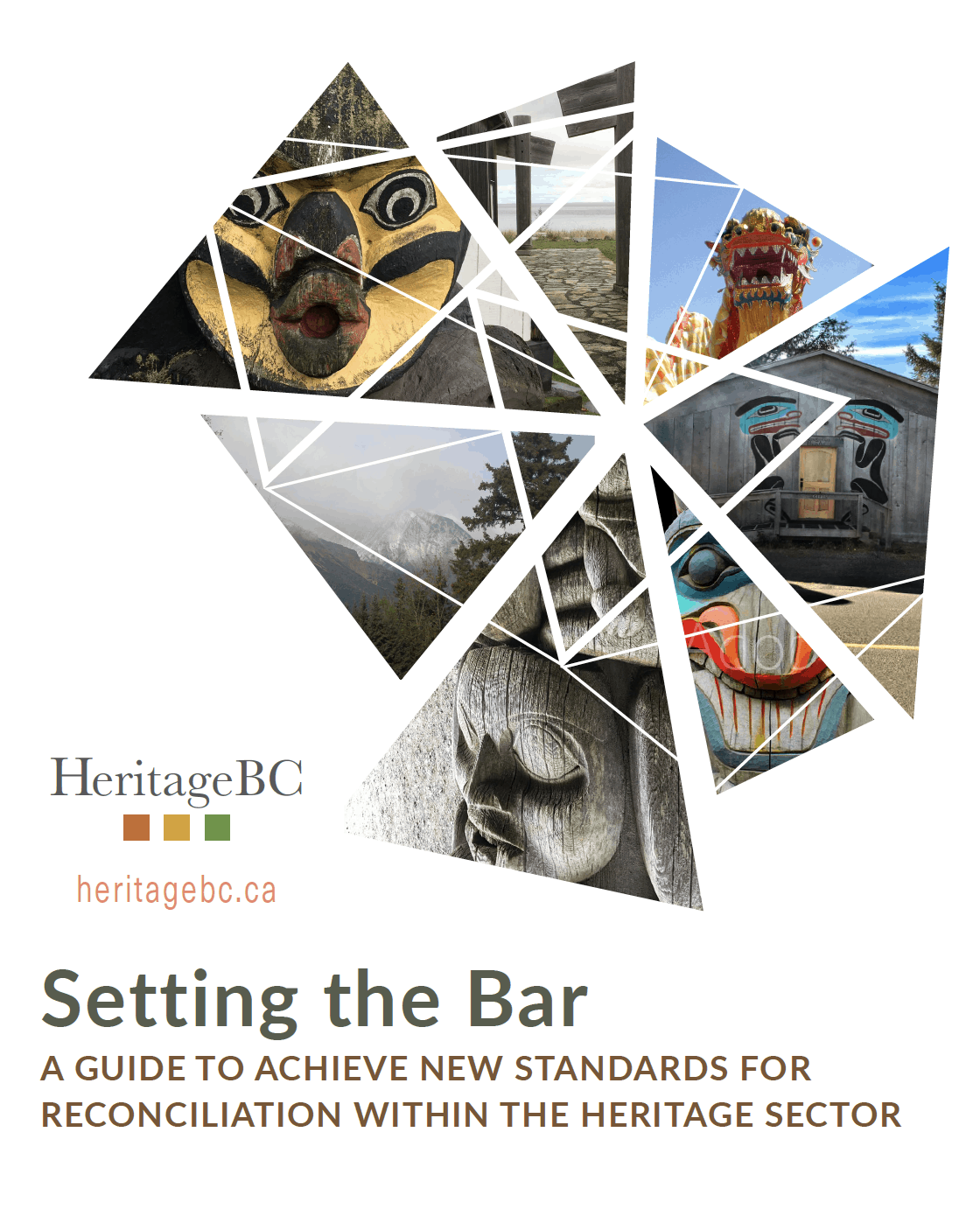- Heritage 101
- Advocacy
- Accessibility for Historic Places
- Climate & Sustainability
- Cultural Maps
- Heritage Place Conservation
- Heritage Policy & Legislation
- Homeowners
- Intangible Cultural Heritage
- Reconciliation
- Indigenous Cultural Heritage
- Setting the Bar: A Reconciliation Guide for Heritage
- 1. Heritage and Reconciliation Pledge
- 2. Acknowledging Land and People
- 3. Celebrating Days of Recognition and Commemoration
- 4. With a Commitment to Learn
- 5. Committing to Strategic Organizational Diversity
- 6. Mission-Making Room for Reconciliation
- 7. Possession, Interpretation, Repatriation and Cultural Care
- 8. Shared Decision Making
- 9. Statements of Significance and other heritage planning documents
- 10. Heritage Conservation Tools, Local Government Act
- Racism: Do Not Let the Forgetting Prevail
- Taking Action: resources for diversity and inclusion
8. Setting the Bar: Shared Decision Making

ACTION: work with Indigenous peoples in developing the cultural significance of the archaeological and/or historic site and incorporating intangible cultural heritage values and information; establish and enhance relational versus transactional connections through development and implementation of shared decision-making processes addressing intangible cultural heritage.
Download 8. Setting the Bar: Shared Decision Making
There are numerous theories and approaches to collaboration and decision making but, in practice, failure is common due to inadequate intent, improper implementation, and an inequitable balance of influence (to name just a few of the reasons for failure).
The First Peoples’ Cultural Council (FPCC) proposes a “shared decision-making” approach, which requires the parties to approach decision-making with equal authority and influence. Going beyond consultation, the parties enter into the decision-making process as equals.
The balance of influence has long rested with governments and ‘traditional’ heritage organizations, but that is changing, and, in the heritage sector, we recognize Indigenous peoples’ rights and abilities to care for their own cultural heritage.
Between these two autonomies of influence is “collaborative management and shared decision-making over the use and management of land and resources” (as expressed by FPCC).
Detailing collaboration and decision-making are beyond the scope of this document, but we can set out standards as essential guiding principles and intentions for your work.
Standards:
Site managers and caretakers will work with Indigenous peoples in developing the cultural significance of the archaeological and/or historic site and incorporating intangible cultural heritage values and information, along with that of any other associated cultural groups, in presenting the site to visitors. This approach will include issues of cultural care, storage, and exhibition.
Site managers and caretakers will establish and enhance relational versus transactional connections through development and implementation of shared decision-making processes addressing intangible cultural heritage. Decisions are made through a shared process that involves providing capacity for all parties to participate from preplanning stages to the achievement of outcomes. No one has more authority than another.
Site managers and caretakers recognize intangible cultural heritage is best managed with or by the community. All people need to have access to, and make decisions about, their own intangible cultural heritage in whatever form it exists.
This section is directly drawn from “Recommendations for Decolonizing British Columbia’s Heritage-Related Processes and Legislation”, published by First Peoples’ Cultural Council in 2020.
